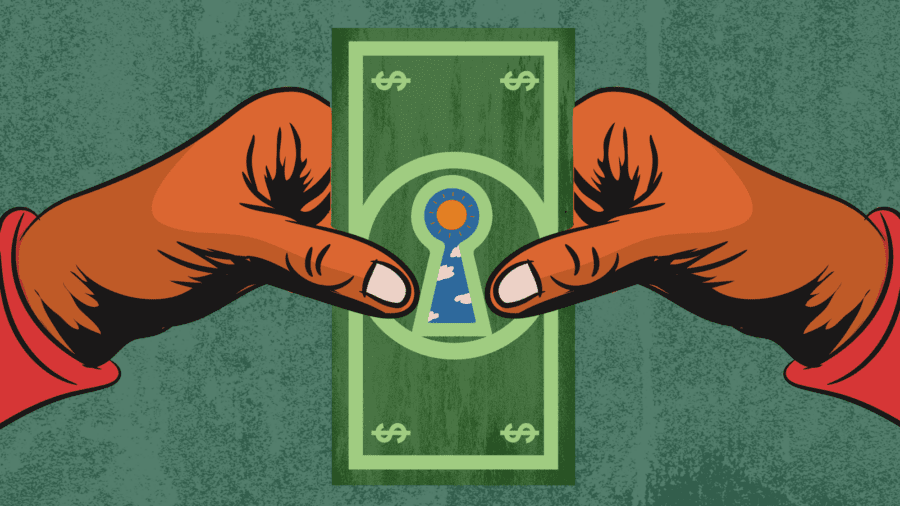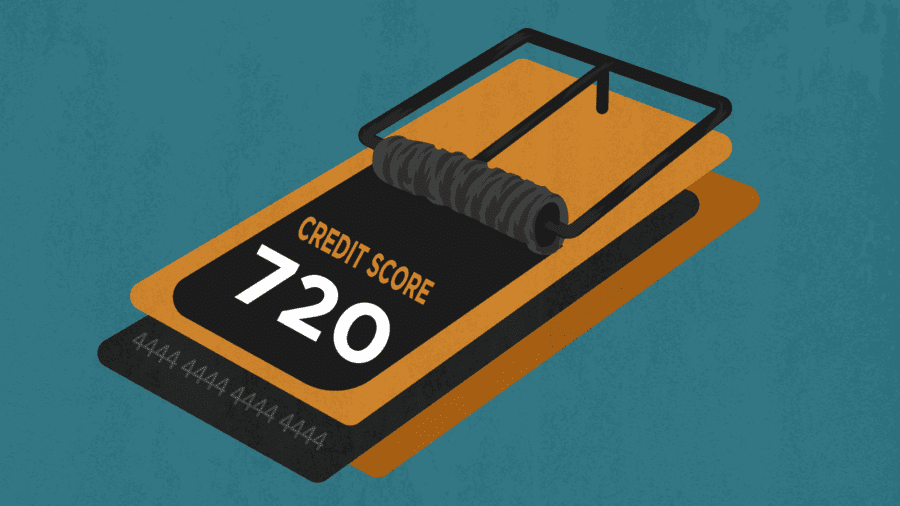
Your Holiday Guide to Mindful Shopping, Budgeting, and Gifting
Did you know that in 2021, consumers spent an average of $998 on gifts during the holidays? In 2019, that average was $846. No matter what your monthly income looks like, and no matter how big your family is, that’s a high price tag to devote to holiday spending.
With the holiday season quickly approaching, stress levels begin to rise as consumers everywhere juggle the costs of entertaining guests, traveling to see family, and buying gifts for their loved ones. However, the holiday season doesn’t have to be so stressful. The holidays should be spent enjoying time with family and relishing in the joy of spreading happiness and cheer, not worrying about making your mortgage payment because you spent far too much money on gifts.
Of course, it’s important to show your loved ones you care for them, and a great way to do that is by buying them gifts. This doesn’t mean you have to put a hole in your wallet, however. It also doesn’t mean you’re necessarily bad with finances. Rather, you just need a little bit of guidance for holiday shopping. In this article, we provide a guide on how to control your holiday spending by budgeting and shopping mindfully so you can focus on spending time with loved ones.
Create a Holiday Budget
It’s important you don’t wait until the holiday season is already upon us — actually upon us, not when department stores start decorating for the holidays in August — to plan out your holiday budget. The holidays are busy for everyone, from coordinating with family members for get-togethers to getting the kids in one place to take the annual greeting card photo. There’s so much to consider that it can be easy to overlook the most important part — creating a budget to control your spending.
Place a Value on Each Gift Recipient
Write down the names of everyone you plan on buying a gift for this holiday season — from the mailman to your in-laws to your significant other — and place a dollar figure next to each name. Don’t get this twisted — you’re not assigning literal monetary value to the relationships in your life! Rather, you’re setting a limit on how much money you allow yourself to spend on each individual.
Set a Spending Limit
The first and most important thing you should do when creating a holiday budget is set a non-negotiable spending limit. Go through your bank statements, credit card accounts, and current budget, and try to figure out how much money you can add to your holiday budget. It’s important that you don’t take money away from crucial areas you need such as rent, utilities, or your emergency fund. The goal is to find money that you’re spending that isn’t necessary, so you can redirect that money into your holiday budget. Set a firm spending limit that you feel confident you won’t go over.
Figure Out Your Holiday Expenses
Brainstorm and think of any and all expenses that you should account for during the holiday season. Things like party decorations, holiday meal ingredients, gifts for family and friends, travel accommodations, and gift-wrapping supplies should all be on the list. Every family is unique, however, and your list of expenses should be specific to you and your family’s needs.
To give you a more accurate image of what to expect, you can go through your previous year’s bank and credit card statements. Not only will this give you a rough idea of where your money went last year, but it will also allow you to find areas in your budget you can improve on.
If last year’s spending was a little out of control, don’t panic! We all go overboard from time to time. Take this as an opportunity to assess what’s truly a priority and what isn’t. This can be tough, but it will save you a lot of money — and headaches — if you do it before the holiday season gets here. Make a list of priorities for your holiday spending and reduce excess spending wherever you can.
Assign Categories
One way to help you stick to your holiday budget is to create expense categories and assign your holiday money to each of them. You should make sure each category has its own spending limit, as it will encourage you to stick to your budget. It’s tough making the call on what you can and can’t spend money on during the holidays, but it’s not impossible.

The Greatness Mindset
Learn the secrets of some of the greatest minds in the world. Unlock the power of your mind and live your best life today.
Learn MoreAdhere to Your Holiday Budget
Some might say that sitting down and going over expenses, creating a budget, and mapping out how you’re going to spend your money over the holidays is the toughest part of the process. However, others would argue the planning stage is a walk in the park and the real challenge lies in sticking to your budget. Whichever part of the process is hardest for you, it can’t be understated how difficult it can be to adhere to your own budget, especially during the holidays. That’s why it’s critical to be honest with yourself from the jump so you can prepare accordingly.
Make a Master Shopping List
Everyone is familiar with writing out a grocery list so you don’t forget why you went to the store in the first place. It’s not fun, but it is necessary. Think of your holiday shopping list like a grocery list. How can you expect to stick to your budget if you don’t have a plan?
Take the time to make a master list of all the holiday shopping you need to get done and add in the budget you’ve already created alongside it. Keep this list handy whenever you go shopping to keep yourself in check and avoid unnecessary purchases.
Avoid Impulse Buys
Even if you’re the most diligent person you know and don’t expect to go beyond your spending limit, you’re still only human. What if you see the perfect addition to a gift you’ve already purchased for someone? How do you stop yourself from making an impulse buy? Impulsive buying is the tendency of a customer to buy goods and services without planning in advance. When a customer makes such buying decisions at the spur of the moment, they’re usually triggered by emotions and feelings.
Take plenty of time to research each gift you plan on buying, and price-check other sellers to make sure you’re getting it for the cheapest price. A great way to keep yourself in check is to shop online and refine all your searches by setting a budget limit. Many online retailers will even provide a link where you can find a certain item at a cheaper price from another seller. This will allow you to assess all your options without having to check the price of every item.
Track Your Spending
You should track all your spending as a general rule of thumb to account for where your money is going, but this is especially important during the holiday season. Take account of everything you spend money on daily, including receipts if possible, in the event you need to make a return. A notepad, spreadsheet, or budgeting app are all acceptable to use, so long as you use something that’s easily available while you’re shopping.
Make a Special Savings Account
Planning ahead of the holiday season gives you more time to prepare and decide on your budget, but it also gives you time to add money to a special holiday savings account. Though you will still need to budget your expenses and set spending limits, putting money into a holiday savings account each month leading up to the holiday season is a great way to ensure you not only have the finances you need, but will also keep you from spending money you need for rent, utilities, etc.
Don’t Forget About Shipping
If you’re doing your holiday shopping online, it’s vital that you don’t overlook the shipping costs of the gifts you buy. You can avoid shipping costs by opting to pick the item up in-store, or you can search for websites that offer free shipping. Remember, it may be a good idea to do your online shopping several months in advance, not just because shipping can sometimes take a few weeks, but because companies love to hike up prices around the holiday season. By being proactive and getting your shopping done months in advance, you ensure you’re paying a fair price for the gifts you buy your loved ones.
Join In 200 Million+ On The Journey to Greatness
Bonus Tips
Use Black Friday and Cyber Monday discounts to your advantage. The pre-Christmas specials that many businesses provide are an excellent way to save money and get a head start on your holiday shopping. Reviewing your list and the sales in advance can help you save the most money possible.
Create homemade gifts for those closest to you. Creating homemade holiday gifts are a terrific method for creative individuals to save money and demonstrate their affection for the recipient.
Give experiences rather than material goods. While material gifts are always appreciated, sometimes experiences are more valuable. Instead of purchasing a home kitchen set for your aspiring-chef daughter, try purchasing culinary lessons for the two of you to take together. She’ll gain practical experience, and you two can enjoy quality time together.
Keep your budget in check. Managing the pressure and desire to provide holiday gifts can be difficult, forcing many individuals to make difficult sacrifices. While it may be difficult to miss gifts or give far less than desired, it is likely to be significantly less burdensome than incurring debt or reducing spending on needs.
Understanding Shopping Addictions
If you’ve ever heard someone refer to themselves as a “shopaholic,” you probably assumed they just love to shop, and that’s likely what they meant as well. After all, who doesn’t love to shop? There is such a thing as real addiction to shopping, however. Not only is a shopping addiction very real, but it is very different than simply enjoying shopping.
What Is Shopping Addiction?
Shopping addiction is very serious and will always lead to further problems down the road. According to the American Psychiatric Association, addictions can alter our thinking and behavior. We can develop a tolerance to the substance we’re addicted to, requiring more of it to feel its effects.
Unplanned purchases are characterized as impulse purchases. This might be something as minor as gum in the checkout line or as large as a costly leather jacket that captures your eye at the mall. The truth is that the majority of us do this, at least on occasion.
Impulsive purchases may appear innocent, but they can drain your bank account and lead to buyer’s remorse. Moreover, they demonstrate that you do not have complete control over your finances. However, compulsive purchasing is a pattern of problems. Compulsive shopaholics organize their shopping trips not on a whim, but for a specific cause. This may be an attempt to overlook an issue or to relieve tension; however, excessive shopping produces more difficulties and stress. Why? Because obsessive buying is an uncontrollable tendency that persists. In contrast to impulsive purchasing, obsessive shopping is an addiction.
Happy Holidays Free of Financial Stress
No matter how you celebrate, the winter holiday season is meant to relax and enjoy the company of those you love most as well as show them how much they mean to you. The good news is, showing your loved ones appreciation doesn’t have to always mean buying the most expensive gifts. By following the guidelines presented in this article, you’re on your way to having the happiest of holidays without breaking the bank.
Greatness Authors
Greatness Authors is a collection of writers, thinkers, curiosity experts, and students of the world who are committed to bringing you the most up-to-date, impactful, and inspiring information surrounding Greatness topics.

Before You Retire, Ask Yourself These 7 Financial Questions to Make Sure You’re in the Clear

The *New* Way to Market Your Business on YouTube & Best Practices for Higher Engagement

The Power of Masterminds to Grow Your Business and How to Find One Near You

4 Inspirational Stories That Prove Money Isn’t the Key to Happiness

A Beginner’s Guide to Building a Great Credit Score While Avoiding Debt and Common Credit Mistakes










